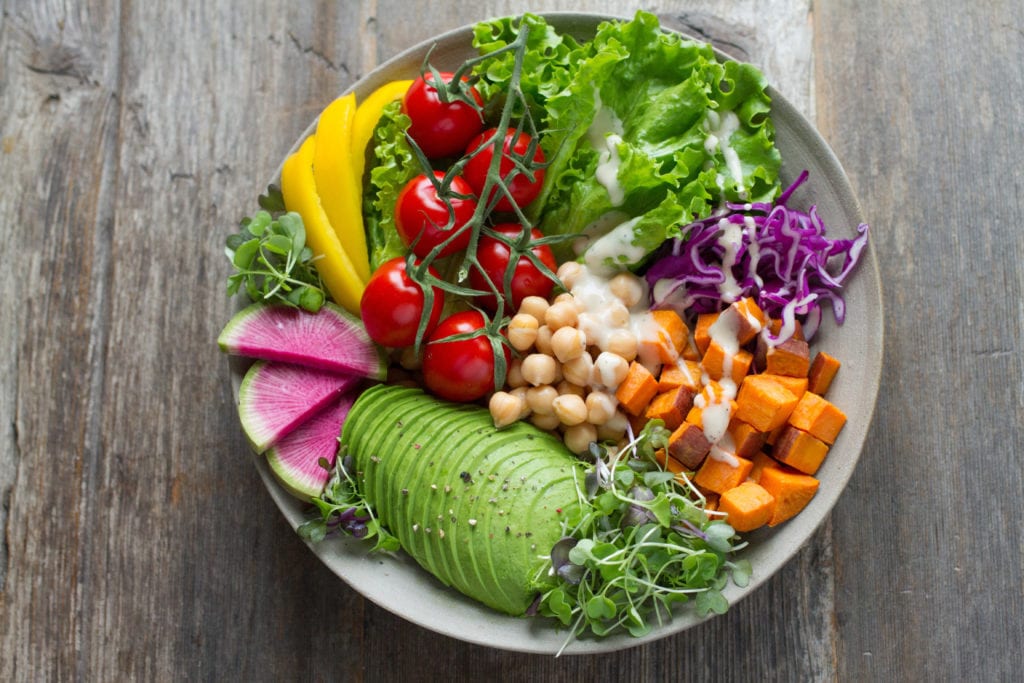
Happy World Vegan Day
Are you a healthy vegan? While a vegan diet can hold many plant-induced health benefits, it can also leave you nutrient deficient and feeling in worse shape than your carnivorous friends. So what are the potential missing links in a vegan diet?
Vegan diets avoid any animal-derived foods, which means no meat, dairy or eggs. Following a successful vegan diet takes planning and preparation as it is often difficult to find vegan snacks or healthy take away options. And you really want to avoid reaching for the processed, refined snacks. A bag of crisps may be vegan but it doesn’t mean they’re healthy!
Foods to include
- Veggies, veggies, veggies (obviously!) and some fruit – for vitamins and minerals
- Pulses and legumes – for protein
- Seaweed – for protein and minerals
- Nutritional yeast – for its vitamin B12 content
- Wholegrains – for fibre, protein, also good sources of B vitamins and iron
- Nuts, nut butters and seeds – for essential fats and minerals (especially zinc)
Common vegan nutrient deficiencies
Protein – the building blocks of life! So important for our cells and muscle growth and repair. Anyone eating plant-based proteins should be aware that they are less bio available in the body than animal-based proteins are, so vegan protein requirements may actually be higher.
Iron – important for producing red blood cells. Symptoms of deficiency include fatigue and tiredness, which can eventually lead to anaemia. Dietary sources include pulses, dark green leafy veg, nuts, seeds and tofu. Eating foods rich in vitamin C will increase the body’s absorption of iron. Avoid drinking tea with iron-rich foods, as the tannins in tea can inhibit absorption.
Calcium – as we all know, vital for bone health, but also important for muscles, veins and nerves. Vegan sources include dark green leafy veg, almonds, tofu and tahini. It’s absorption can be hindered in plant source by oxalates and phytates, natural plant-based inhibitors.
B12 – deficiencies can lead to nerve damage, heart disease and anaemia. Evidence is still out as to whether vegans can sufficiently meet their needs through diet alone, and this is one nutrient I recommend supplementing in most instances.
Zinc – important in supporting immune function and wound healing. Widely available in plants, but has a low bioavailability due to the presence of phytates which can inhibit zinc absorption. Soaking and sprouting grains can help reduce these phytates making the zinc more bioavailable.
Omega 3 fatty acids are considered essential because our bodies can’t makde them so you have to get them through food. While available in vegan form from nuts, seeds and green leafy vegetables, it is not as bioavailable in the body as omega 3s from oily fish. They are thought to reduce the risk of chronic diseases such as heart disease, cancers and arthritis. They are also helpful in reducing inflammation and help to support a healthy brain.
It’s really important for everyone – but even more so if on a vegan diet – to eat as wide a range of foods as possible to maximize not only the nutrients you are eating, but also their availability in your body. For example, spinach has a really high calcium content but it is also high in oxalates which actually hinders how much calcium your body is absorbing. Rotating spinach with other green leafy vegetables (kale, cabbage, broccoli for instance) that may have less calcium per serving but a higher bio-availability is a sensible approach.
